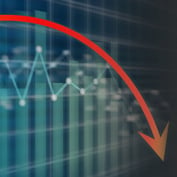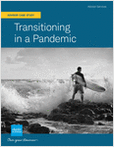A majority of Americans ushered out 2023 worried about the economy in the coming year, Allianz Life Insurance Co. of North America reported this week.
Only 47% of participants in a fourth-quarter survey expected the economy to improve in 2024. Optimism has trended downward in recent years, according to Allianz Life: from 66% in the fourth quarter of 2020, to 54% the following year, to 48% in 2022.
Allianz Life conducted an online survey in November among a nationally representative sample of 1,005 adults.
It noted that market uncertainty and interest rates could be driving Americans’ waning optimism. Seventy-four percent of respondents said the market will be very volatile in 2024, and 77% think interest rates will continue to rise in the coming year.
The survey found that Americans feel better about their personal finances, with 60% of respondents expecting their financial situation to improve in 2024. But even here their optimism has gone downhill, from 67% in 2020 to 65% in 2021 and 61% in 2022.
Millennials are more optimistic than older respondents about their own economic potential in 2024, according to the survey. Two-thirds of millennials think their financial situation will improve in the coming year, compared with 59% of Gen Xers and 51% of baby boomers.
At the same time, 51% of millennials said they are too nervous to invest in the market right now, while just 40% of Gen Xers and 37% of boomers said they feel that way.












 Copyright © 2024 ALM Global, LLC. All Rights Reserved.
Copyright © 2024 ALM Global, LLC. All Rights Reserved.